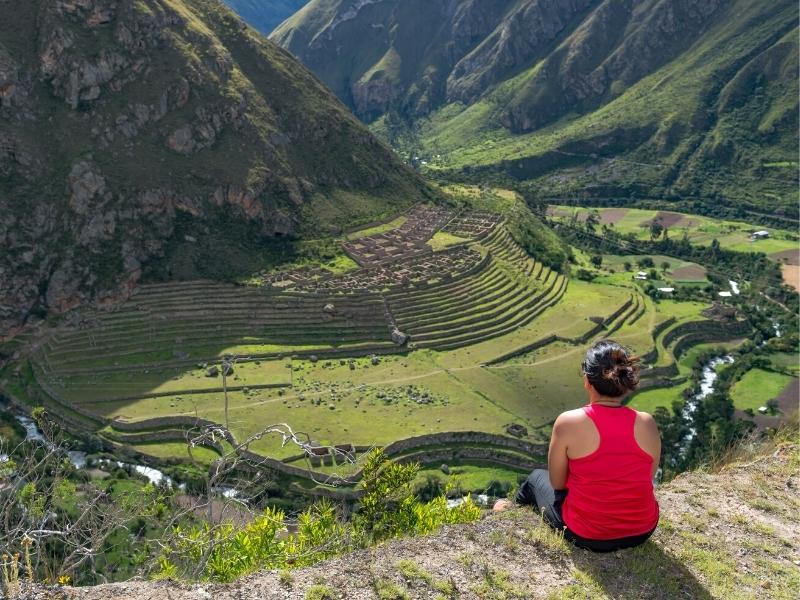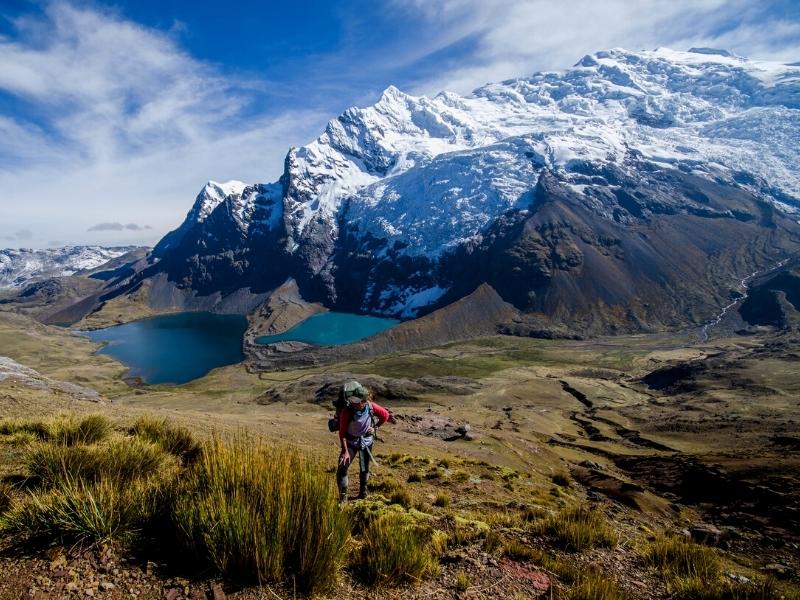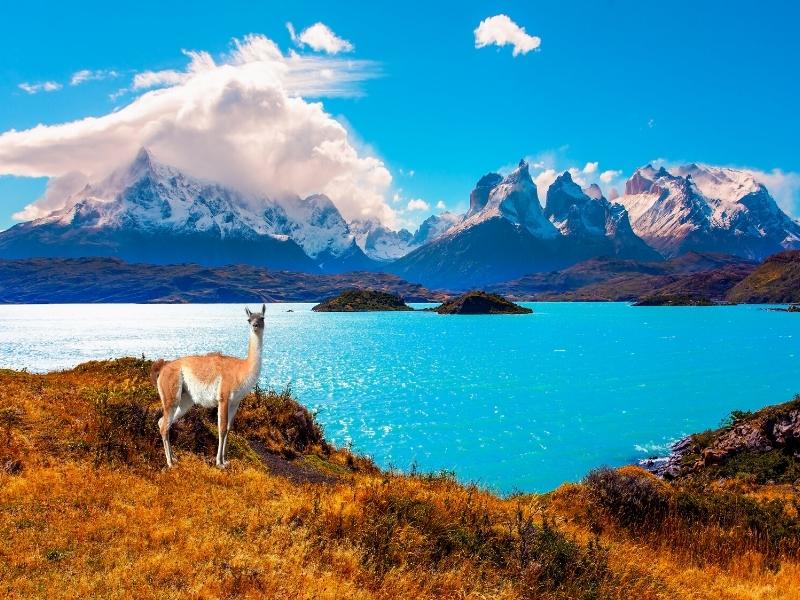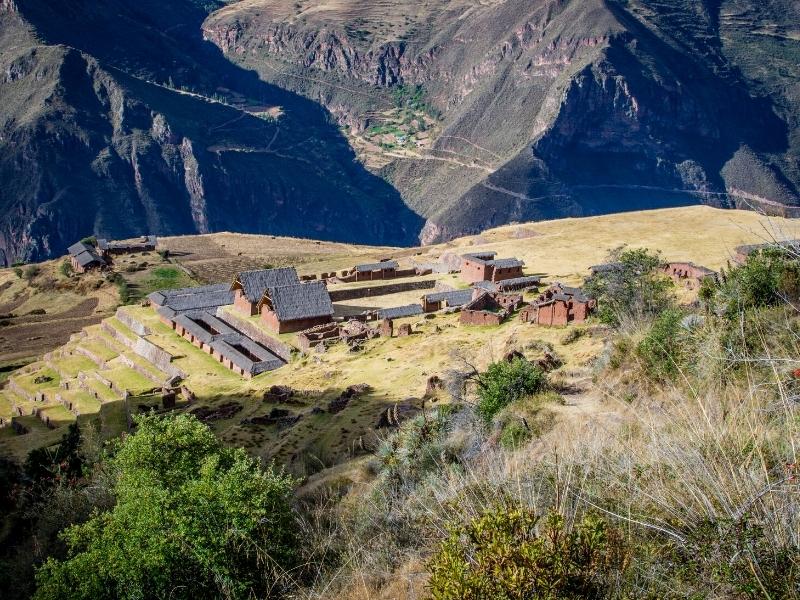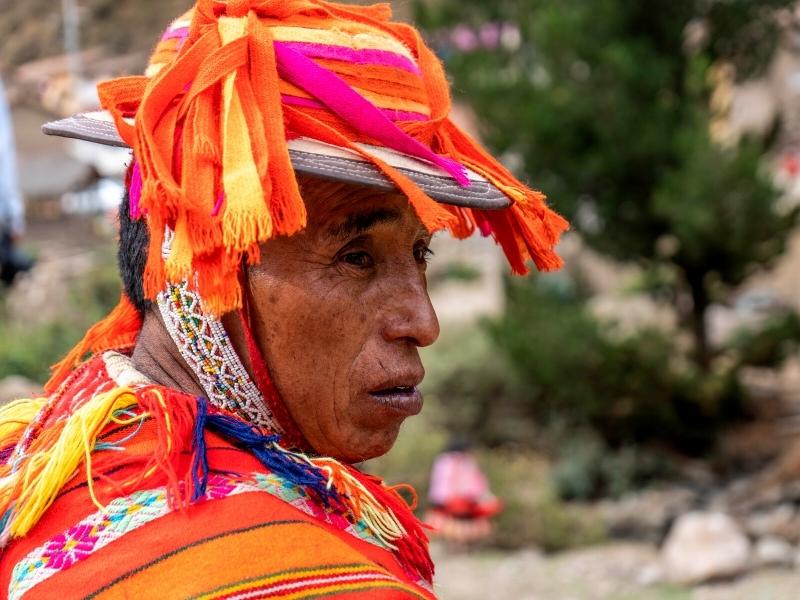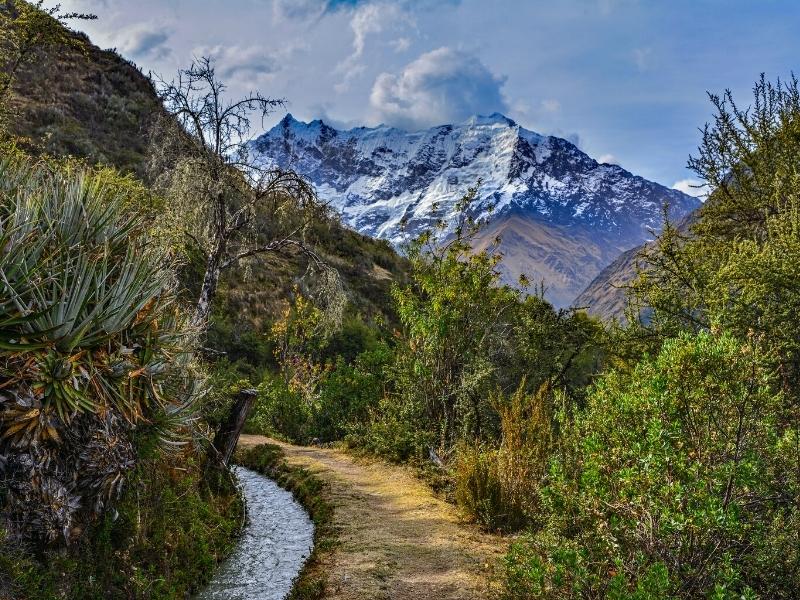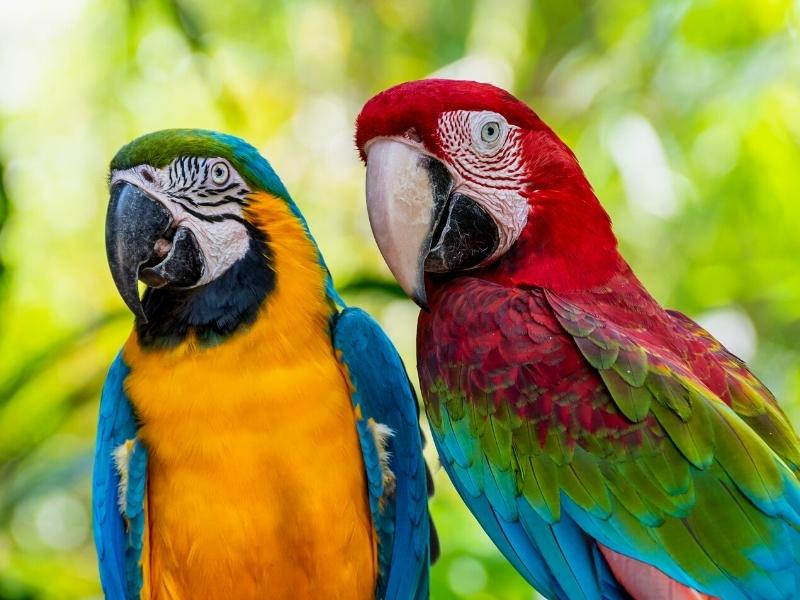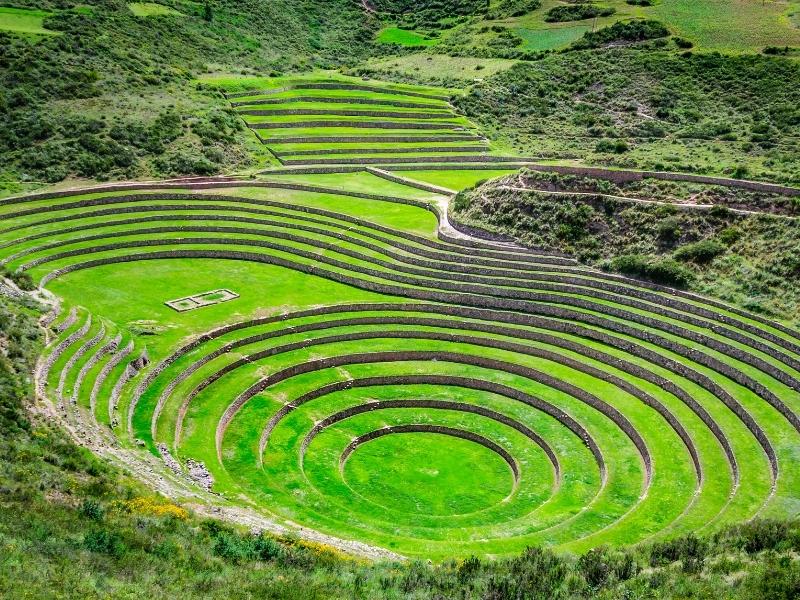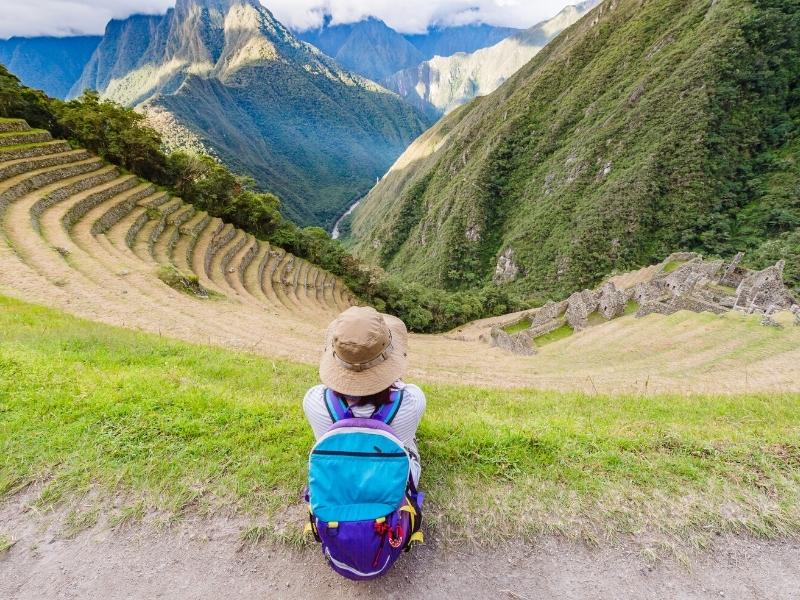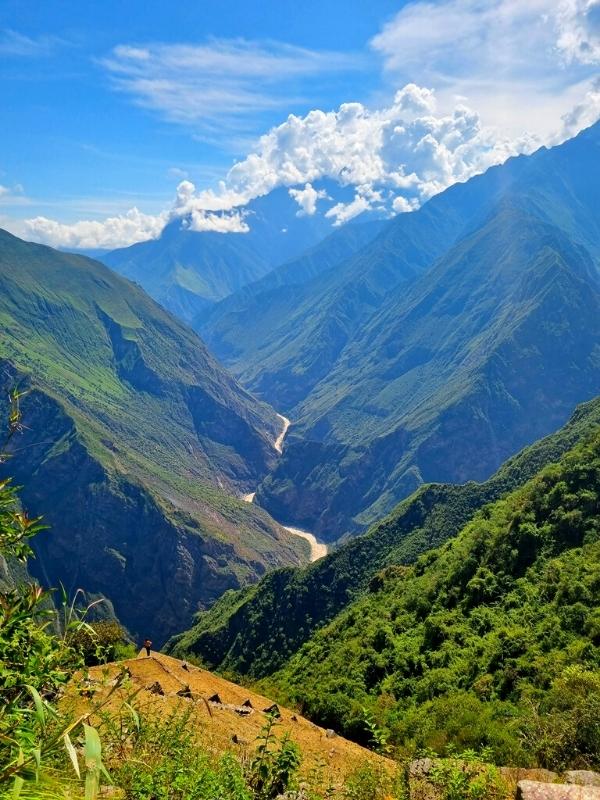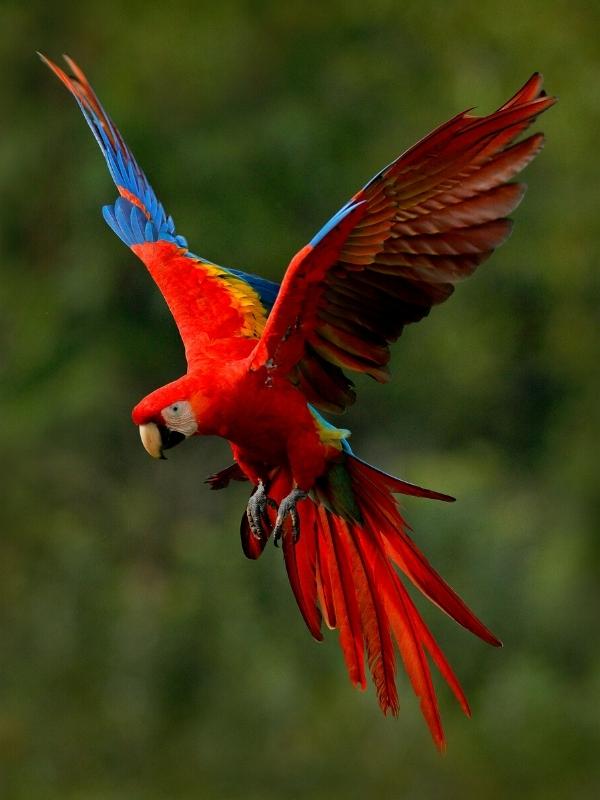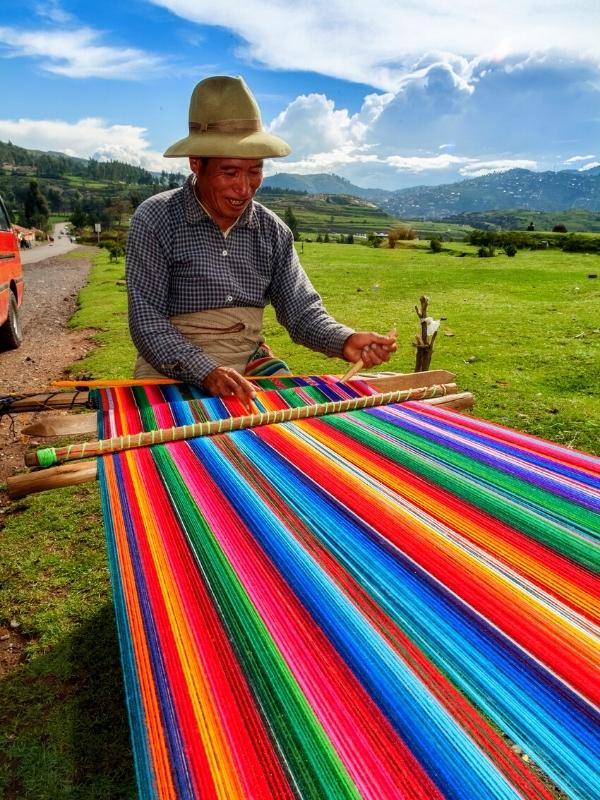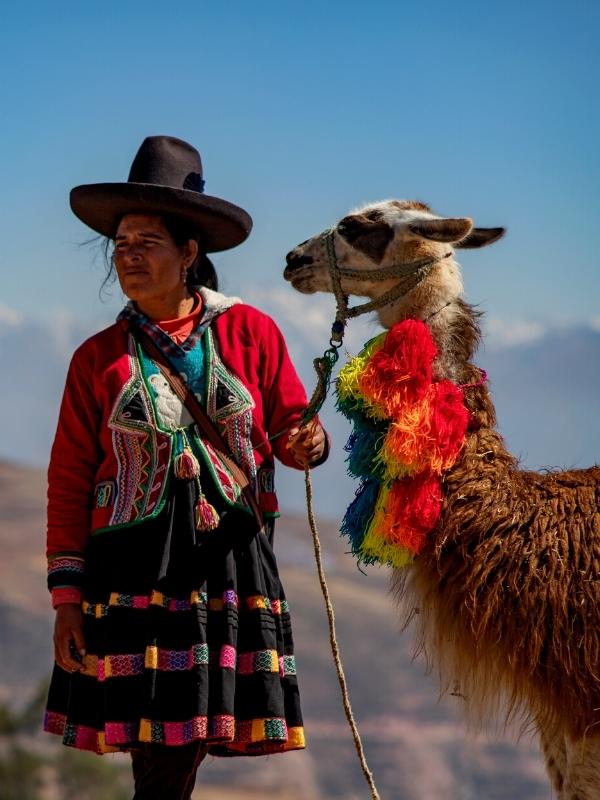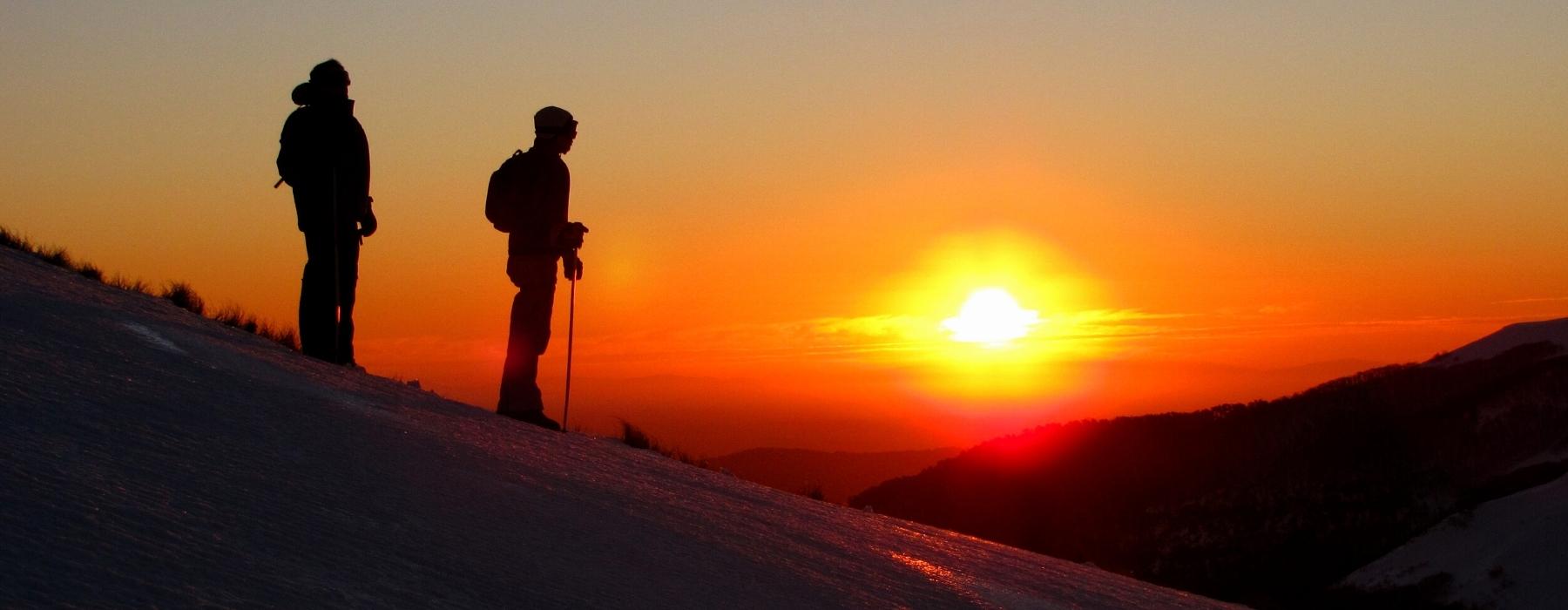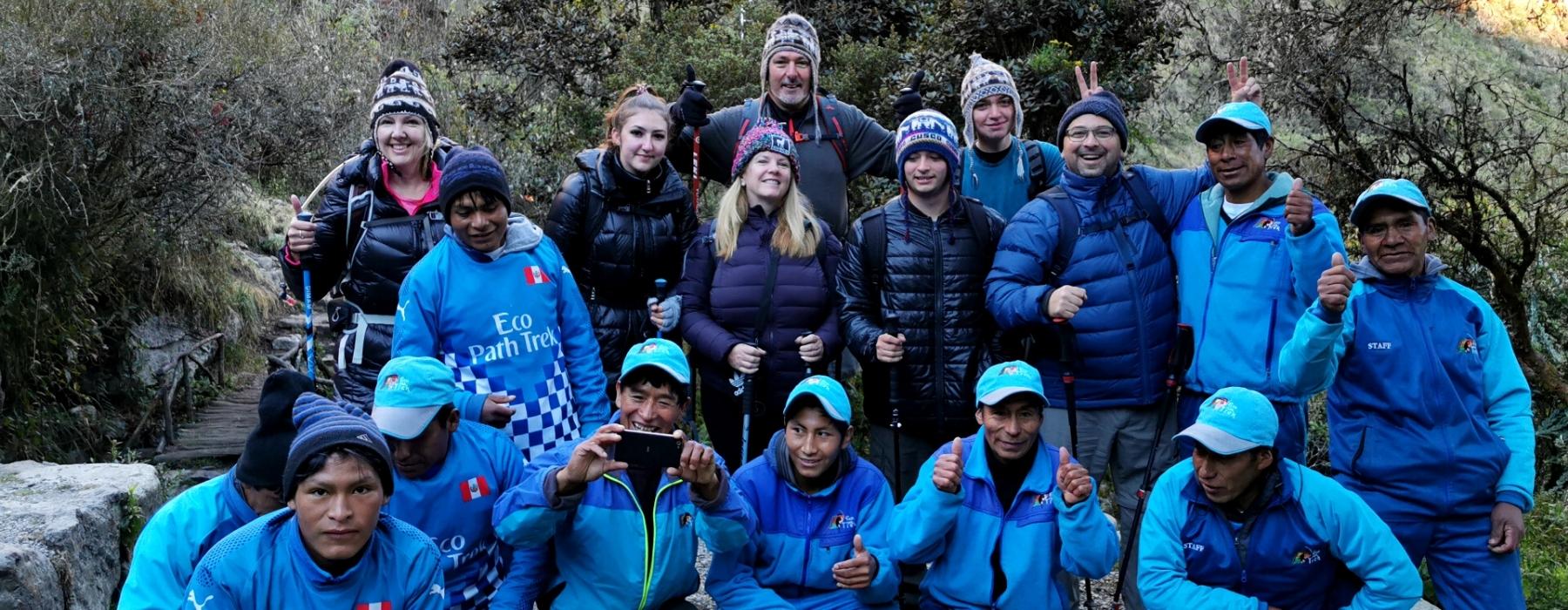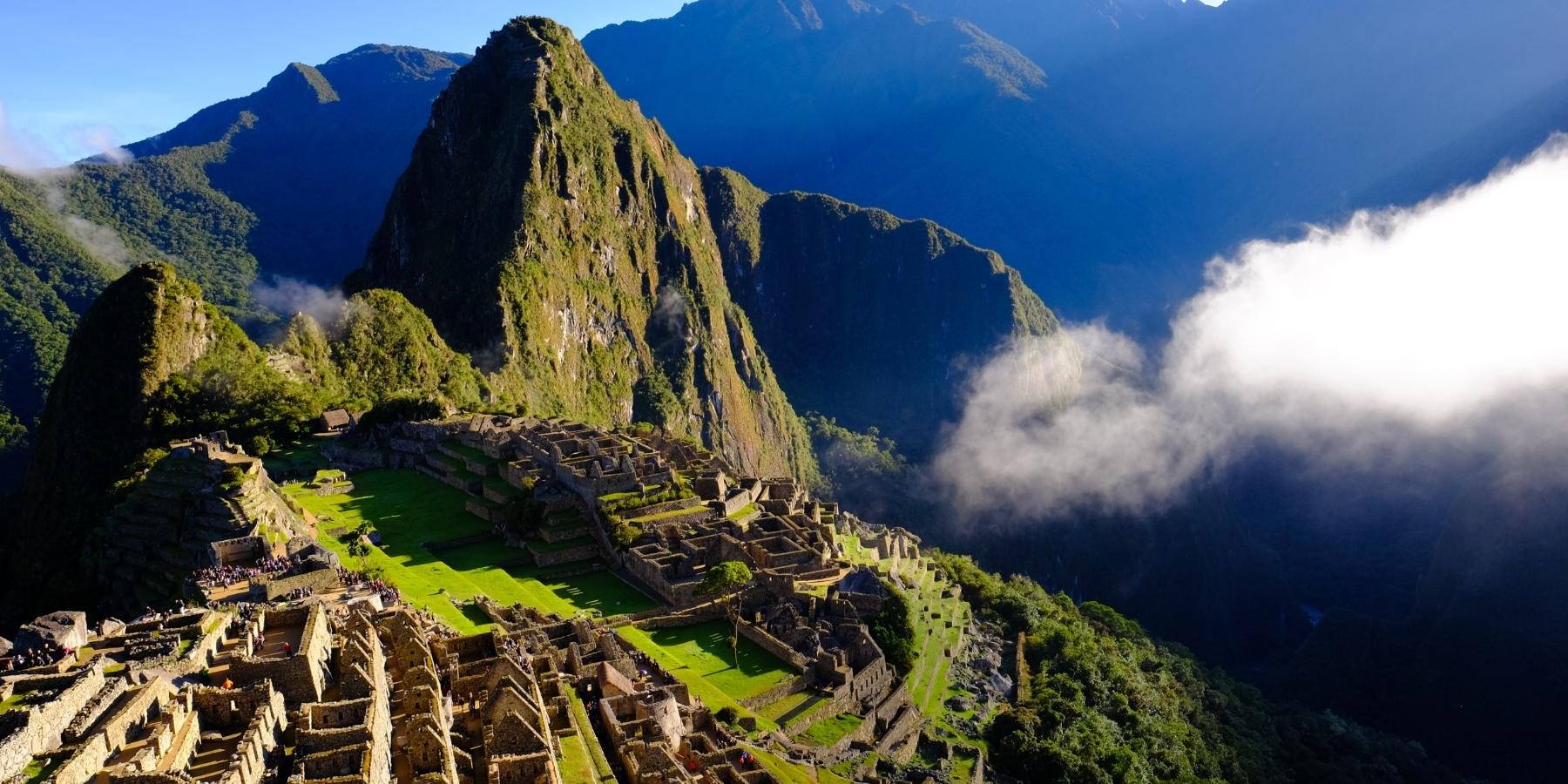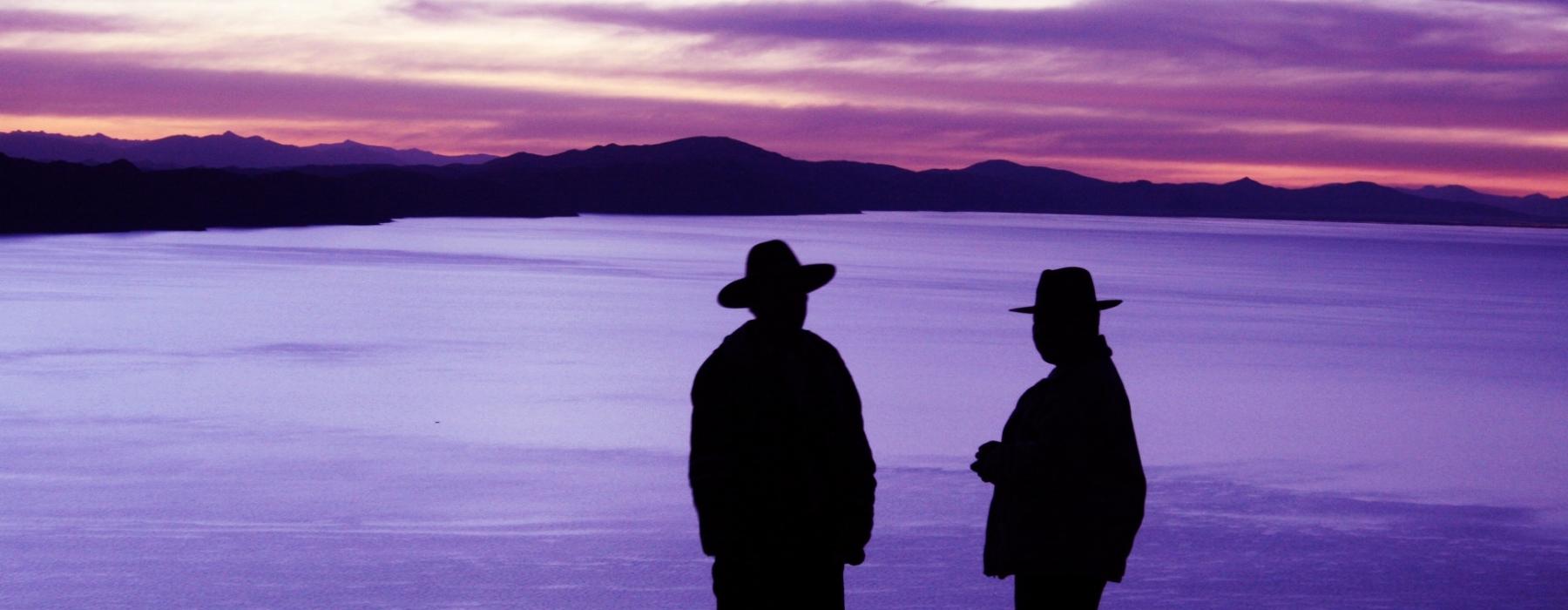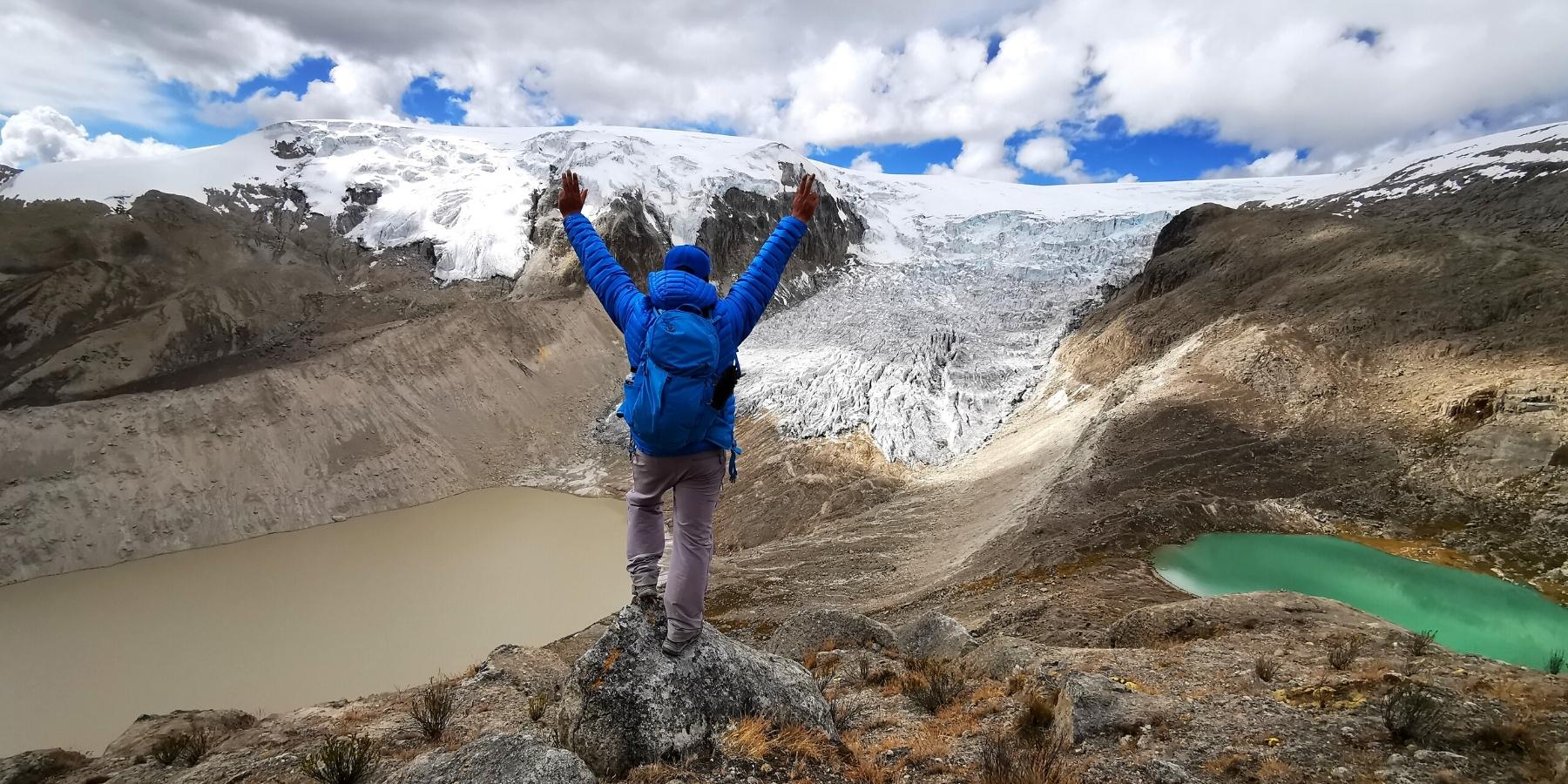ESSENTIAL TRIP INFORMATION
- PASSPORT DETAILS REQUIRED
Full passport details are required at the time of booking in order to purchase Entrance fees to certain sites. Additionally, on certain trips, it’s needed to book bus, train or flight tickets. Delays to provide this information may result in booking fees or changes to your itinerary.
- SINGLE SUPPLEMENT:
A Single Supplement to have your own room is available on this trip however it has a extra cost.
- LUGGAGE
Please ensure you have a day pack or small overnight bag in addition to your main luggage. This will be needed for the Homestay at Lake Titicaca and the night in Aguas Calientes, as you will be leaving your main luggage back at the hotels in Puno and Cusco respectively.
- PASSPORTS, VISAS AND ENTRY REQUIREMENTS
If you receive an immigration card upon entry, please ensure you keep this safe as it may be requested at point of exit. For further information regarding country entry and exit fees, please refer to the ‘Money Matters’ section of this document.
It is a requirement of the Peruvian Tax Authority for our trip leaders to show proof that all travelers on our groups are foreign tourists and are thus exempt from the 18% Value Added Tax (VAT) charged to locals. This may require your trip leader to take a photograph of your main passport page and the page showing the immigration stamp you receive upon entry to Peru.
- MEDICAL AND HEALTH INFORMATION
All travelers need to be in good physical health in order to participate fully on this trip. When selecting your trip please make sure you have read through the itinerary carefully and assess your ability to manage and enjoy our style of travel. Please note that if in the opinion of our group leader or local guide any traveler is unable to complete the itinerary without undue risk to themselves and/or the rest of the group, we reserve the right to exclude them from all or part of a trip without refund.
You should consult your doctor for up-to-date medical travel information or for any necessary vaccinations before departure. We recommend that you carry a first aid kit as well as any personal medical requirements as they may not easily be obtained while travelling.
- HEALTH SCREENING
If you are unwell prior to travelling, please stay at home and contact us to make alternative arrangements. At the group meeting, you will be asked to complete a self-screening health form and report any COVID-19 symptoms as well as any close contact with someone who has suspected or confirmed COVID-19. If you are displaying any symptoms or have any health concerns at this time, we will follow the advice of local health authorities to determine whether medical assistance, isolation or further action is required. We ask all travelers to continue to monitor their health throughout their travels and report any relevant symptoms to their tour leader.
- MOSQUITO-BORNE ILLNESSES:
Some regions of Central & South America can experience outbreaks of dengue fever. There is no vaccination against it, but there are preventative measures that you can take such as wearing long clothing, using repellent, and being indoors particularly around dusk and dawn. If you have a fever or feel unwell, please let your leader know right away. Protect yourself against mosquito-borne illnesses such as malaria by taking measures to avoid insect bites.
- ZIKA VIRUS
There have been reports of transmission of the mosquito-borne Zika virus in this region and we advise all travelers to protect themselves from mosquito bites. Given possible transmission of the disease to unborn babies, and taking a very cautious approach, we recommend all women who are pregnant or trying to get pregnant to consult with their doctors before booking their trip.
- ALTITUDE SICKNESS
Parts of your trip go above 2800 metres / 9200 feet where it is common for travellers to experience some adverse health effects due to the altitude – regardless of your age, gender and fitness.
Before your trip:
Some pre-existing medical conditions are known to severely worsen at high altitude and be difficult to adequately treat on the ground, leading to more serious consequences. It is imperative that you discuss your pre-existing medical condition/s with your doctor. We understand certain medications are reported to aid acclimatizing to high altitude. Please discuss these options with your doctor.
During your trip.
While our leaders have basic first aid training and are aware of the closest medical facilities, it is very important that you are aware of the cause and effects of travelling at altitude, monitor your health and seek assistance accordingly.
- YELLOW FEVER
A valid international certificate of vaccination against Yellow Fever is required in many countries. You may need to present this on arrival at the airport or border crossing. Some countries will refuse entry if you are unable to present your certificate. It’s also quite common for your home country to request a Yellow Fever certificate on your arrival back home. It is your responsibility to check with your doctor well in advance of leaving home about the Yellow Fever requirements for the countries you’ll be visiting.
- FOOD AND DIETARY REQUIREMENTS
While travelling with us you’ll experience the vast array of wonderful food available in this region. Your group leader will be able to suggest restaurants to try during your trip. To give you the maximum flexibility in deciding where, what and with whom to eat, generally not all meals are included in the trip price. This also gives you more budgeting flexibility. As a rule, our groups tend to eat dinner together to enable you to taste a larger variety of dishes and enjoy each other’s company. There’s no obligation to do this though.
- DIETARY REQUIREMENTS
Please let us know your diet requirements before your trip starts.
Generally speaking, in bigger cities/towns vegetarians can expect a reasonable range of vegetarian venues and/or vegetarian options within tourist restaurant menus. However, vegetarianism is not the norm in this part of the world so options can be limited when eating at homestays, small local restaurants, street stalls, markets, etc.
More restrictive diet requirements (vegans, coeliac, gluten intolerance, fructose intolerance, lactose intolerance, etc.) can also be accommodated along this trip but you should expect a lesser variety than what you can expect at home. We recommend that, if possible, to bring your own supply of snacks with you.
For those on strict Kosher or Halal diets, we understand your dietary requirements are important, however, sometimes due to cultural and language differences these are not always easy to convey when you are travelling. Your guide will do their best to assist you in translating your needs when eating out, but please be aware that these diets are almost unheard of in much of the continent and the best they may be able to accommodate is no pork and shellfish. If this will be a concern for you, you may need to consider opting for vegetarian or vegan meals for the included meals in your itinerary. We recommend researching kosher or halal options in your destination country prior to travel to see if you are able to buy snacks once there, otherwise consider bringing some from home.
- OCCASIONAL ALTERNATIVE ACCOMMODATION
The style of accommodation indicated in the day-to-day itinerary is a guideline. On rare occasions, alternative arrangements may need to be made due to the lack of availability of rooms in our usual accommodation. A similar standard of accommodation will be used in these instances.
- CHECK-IN TIME
Throughout the trip we request that our hotels prepare rooms in time for our arrival, especially if we’re arriving prior to normal check-in time. However this isn’t always possible which means we won’t be able to check-in immediately on arrival at some hotels. Instead, we can store our luggage and explore our new destination.
- PRE/POST TRIP ACCOMMODATION
If you’ve purchased pre-trip or post-trip accommodation (subject to availability), you may be required to change rooms from your trip accommodation for these extra nights.
- MONEY MATTERS
When it comes to money matters on the trip, every traveler is a little different. You know your spending habits better than we do, so please budget a sensible amount for things like drinks, shopping, optional activities, tipping and laundry. It’s always better to bring a little more than you think you’ll need. Also make sure you’ve read your trip details thoroughly, so you know what’s included in the trip price and what isn’t. This should make budgeting a little easier. You’ll find this info in the Inclusions section of your Essential Trip Information (that’s this document).
The recommended amounts are listed in USD for the relatability of universal travelers; however the local currency is needed in the countries you are visiting.
- CONTINGENCY FUNDS
We try to plan for every eventuality, but there are still some things beyond our control. Please make sure you have access to the equivalent of an extra US$500 for emergencies (e.g. severe weather, natural disasters, civil unrest) or other events that result in unavoidable changes to the itinerary (e.g. transport strikes or cancellations, airport closures). Sometimes these things necessitate last minute changes to enable our trips to continue to run, and as a result there may be some extra costs involved.
- MEALS NOT INCLUDED
For this trip we recommend between USD 25 to 50 per day. How do we work this out?
Breakfast – If breakfast is not included, you can expect to pay between USD5 to USD10 at a local café.
Lunch – If you are happy with a quick snack on the go, you may get away with as little as USD5 to USD10 for a set menu at a local eatery or a sandwich and a drink at a café. On the other hand, a lunch meal at a more tourist restaurant can cost between USD10 to USD15.
Dinner – At dinner time, your leader will normally recommend restaurants where you can safely try the local specialties of the region. Expect meals to cost between USD12 to USD25 for a main.
These are indicative prices only. If you are in a tight budget, are happy to eat just local food and are not afraid of an upset tummy every now and then, you can eat cheaper than this. If you want to try just the finest food at the finest restaurants, then you can expect meals to cost as much as in western countries.
- CREDIT CARDS & ATMs
ATMs are widely available in major towns and cities across Latin America. Credit cards are generally available in tourist shops and restaurants. Visa and Mastercard are generally preferred over American Express, Diners, etc. Smaller venues take cash only.
Check with your bank before departure that your card is accepted in the countries you are travelling to and what their fees and charges are. Also ensure your bank is aware of your travel plans as – suspecting fraud – they may cancel your cards after the first few international transactions. Be aware that your withdrawing limit may vary from country to country (regardless of your withdrawing limit in your home country) and it can be as low as the equivalent to USD100 per day. If bringing over cash, please note USD100 bills with serial number CB or BE and any other USD bills that are old, torn, written or stamped on will not be accepted by local banks.
- TIPPING
Gratuities aren’t compulsory on your trip, but they can make a big difference to locals employed in the tourism industry. We suggest carrying small notes of local currency around as you go. It’ll make tipping easier.
- PACKING
Most travelers prefer to take a small to medium wheeled suitcase, which is a great size for the packing capacity in our private vehicles. Whatever you take, be mindful that you will need to be able to carry your own luggage, handle it at airports, take in/out of accommodation and perhaps even walk short distances. Generally speaking, we recommend you pack as lightly as possible. You’ll also need a day pack/bag for activities and day trips. In terms of weight, airlines generally allow a maximum of 20kg for check in luggage.
Other than the items and clothing you always need on a trip, below we have listed packing suggestions specific for this trip:
- RECOMMENDED
– Soft and/or hard copies of all important documents e.g. air tickets, passport, vaccination certificate, etc. and keep the hard copies separate from the originals. While not valid, a copy makes it very much easier to obtain replacements if necessary
– Water bottle. We recommend at least a 1.5 litre capacity. The sale of bottled water contributes to an enormous environmental problem around the world. In addition to the water in bottles, the production of a 1 litre plastic bottle takes 2 litres of water and 200ml of oil. A large proportion end up in limited landfill or discarded in waterways and natural environments
– Electrical adapter plug
– Personal medical kit. Your guide will carry a large kit but we recommend you carry items such as mild pain killers, electrolytes and bandaids.
– Insect repellent
– Watch/Alarm clock or phone that can be used for both
OPTIONAL:
– Ear plugs to guard against a potential snoring room-mate
– Phrase book
- VALUABLES
Please try to avoid bringing unnecessary valuables, and use your hotel safe. It’s also a good idea to purchase a money belt or pouch that is easily hidden.
- LAUNDRY
Laundry is available at many hotels and towns during this trip, although you might need to wait for a two-night stop in order to make sure you get it back in time. While laundry at hotels is usually charged by the item, laundromats usually charge by the kilo, which is generally inexpensive (about USD 2 per kilo)
- PHONE AND INTERNET ACCESS
WhatsApp is a popular way to communicate in Latin America. We recommended downloading WhatsApp prior to departure to communicate with by text with your leader and group members during the tour. Once downloaded, please validate your phone number before leaving home as you will not be able to do this once you arrive unless you have international roaming enabled. Connections for making phone calls through WhatsApp are not reliable, so please do not use this app to make calls to our emergency phone line.
- GROUP LEADER
All group trips are accompanied by one of our group leaders. The aim of the group leader is to take the hassle out of your travels and to help you have the best trip possible. Andean Path Trek endeavors to provide the services of an experienced leader however, due to the seasonality of travel, rare situations may arise where your leader is new to a particular region or training other group leaders.
Your leader will provide information on the places you are travelling through, offer suggestions for things to do and see, recommend great local eating venues, and introduce you to our local friends. While not being guides in the traditional sense, you can expect them to have a broad general knowledge of the places visited on the trip, including historical, cultural, religious, and social aspects. At Intrepid we aim to support local guides who have specialized knowledge of the regions we visit. If you were interested in delving deeper into the local culture at a specific site or location, then your leader can recommend a local guide service in most of the main destinations of your trip.
- SAFETY
Most national governments provide regularly updated foreign travel advice on safety issues involved with international travel. We recommend that you check your government’s advice for their latest travel information before departure and ensure that your travel insurance covers you for all destinations and activities on your trip.
We strongly recommend the use of a neck wallet or money belt while travelling, for the safe keeping of your passport, flight tickets, cash and other valuable items. Leave your jewelry at home – you won’t need it while travelling. Many of our hotels have safety deposit boxes, which is the most secure way of storing your valuables. A lock is recommended for securing your luggage.
Your leader will accompany you on all included activities, however, during your trip you’ll have some free time to pursue your own interests or relax and take it easy. While your leader will assist you with the available options in a given location, please note that any optional activities you undertake are not part of your Intrepid itinerary, and Intrepid makes no representations about the safety of the activity or the standard of the operators running them. Please use your own good judgement when selecting an activity in your free time. Please also note that your Leader has the authority to amend or cancel any part of the trip itinerary if it’s deemed necessary due to safety concerns.
- PETTY THEFT AND PERSONAL SAFETY
While travelling there is always the risk of pick-pocketing and petty theft, particularly in the more touristy cities. We recommend that you exercise caution when walking alone at night and encourage you to walk together and only on main, well-lit thoroughfares. Be particularly vigilant on public transport. Simple measures like carrying your day pack on your front, not hanging your bag over the back of your chair or on the floor and wearing a money belt will reduce any chance that your valuables should go missing.
- MONEY WITHDRAWAL
In order to avoid fraud and theft, it is advisable that you withdraw money from ATMs located inside banks or guarded shops during business hours only.
- TRAFFIC AND DRIVING ON THE OTHER SIDE OF THE ROAD
Depending on where you come from please note that drivers in this part of the world may drive on the opposite side of the road from what you are used to. Look both ways before crossing any road. Traffic can be a little more chaotic than you might be used to at home. Be aware!
- SEAT BELTS
Please be aware that local laws governing transportation safety may differ from those in your home country and not all the transport which we use is able to provide seat belts.
- FIRE PRECAUTIONS
Please be aware that local laws governing tourism facilities in this region differ from those in your home country and not all the accommodation which we use has a fire exit, fire extinguishers or smoke alarms.
- LIMA AIRPORT TRANSFERS
For safety reasons, we strongly recommend that during airport transfers in Lima all of your luggage, including hand luggage and valuables, is stored out of sight in the rear boot of the vehicle.
- A COUPLE OF RULES
Everyone has the right to feel safe when they travel. We don’t tolerate any form of violence (verbal or physical) or sexual harassment, either between customers or involving our leaders, partners or local people. Sexual relationships between a tour leader and a customer are strictly forbidden.
Use or possession of illegal drugs will not be tolerated on our trips. If you choose to consume alcohol while travelling, we encourage responsible drinking and expect that you’ll abide by the local laws regarding alcohol consumption.
The sex tourism industry is known to exploit vulnerable people and have negative consequences on communities, including undermining the development of sustainable tourism. For this reason, patronising sex workers will not be tolerated on our trips.
By travelling with us you are agreeing to adhere to these rules. You must at all times comply with the laws, customs, foreign exchange and drug regulations of all countries visited, and you also agree to travel in accordance with our Responsible Travel Guidelines.
The decision of the group leader is final on all matters likely to affect the safety or well-being of any traveller or staff member participating in the trip. If you fail to comply with a decision made by a group leader, or interfere with the well-being or mobility of the group, the group leader may direct you to leave the trip immediately, with no right of refund. We may also elect not to carry you on any future trips booked.
If you feel that someone is behaving inappropriately while travelling with us, please inform your tour leader or local guide immediately. Alternatively, contact us on the emergency contact number detailed in the Problems and Emergency Contact section of this Essential Trip Information.
- TRAVELLING ON A GROUP TRIP
As you travel on a group trip you will be exposed to all the pleasures and maybe some of the frustrations of travelling in a group. Your fellow travellers will probably come from all corners of the world and likely a range of age groups too. We ask you to be understanding of the various needs and preferences of your group – patience with your fellow travellers is sometimes required for the benefit of everyone’s travel experience. Remember too that you have responsibilities to the group. If you are requested to be at a place at a certain time, ensure that you don’t keep the rest of the group waiting. We have found time and time again that the very best trips we operate are those where the dynamics within the group work well – this takes just a little effort on your part. Due to privacy reasons, we are unable to provide you with contact details and any personal information about your fellow travellers booked on your trip prior to departure.
- SOLO TRAVELLERS
This is the beauty of our style of travel: many of our travellers join because they are travelling solo and want to meet and share experiences with like-minded people.
We pair up solo travellers with another traveller of the same gender as per your passport or the information we have in our booking system, so if you identify differently from the gender marker on your passport, please let us know in advance. We also have a Single Supplement available on most trips for travellers who prefer to have their own room.
Please note that this only applies to accommodation during the tour. Pre-trip and post-trip accommodation booked through us will on a single room basis.
Some of our itineraries have accommodation booked on an open gender, multi-share basis and where applicable this will be specified in our Essential Trip Information.
A single supplement is available on this trip, please refer to your booking agent for further information. On the following night the single supplement isn’t available:
- TRAVEL INSURANCE
Travel insurance is compulsory on all our trips for those travelling internationally. We require that at a minimum you are covered for medical expenses including emergency repatriation. If you are travelling within your home country or region please confirm before travel that you are entitled to access the public medical system easily should an accident occur. We strongly recommend all travelers have a policy that also covers personal liability, cancellation, curtailment and loss of luggage or personal effects. For international trips, you will not be permitted to join the group until evidence of travel insurance and the insurance company’s 24-hour emergency contact number has been sighted by your leader.
If you have credit card insurance your group leader will require details of the participating insurer/underwriter, the level of coverage, policy number, and emergency contact number rather than the bank’s name and your credit card details. Please contact your bank for these details prior to arriving in-country.
Travelers who reside within the European Union or Switzerland receive basic international health insurance, so travel insurance is not mandatory under European Union Law. However, as this does not cover situations such as emergency rescues, private health care, or repatriation to their home country, comprehensive travel insurance is strongly recommended. European Union or Swiss travelers who decline travel insurance when travelling outside of their home region must sign a Travel Insurance Waiver Form at the Group Meeting.
